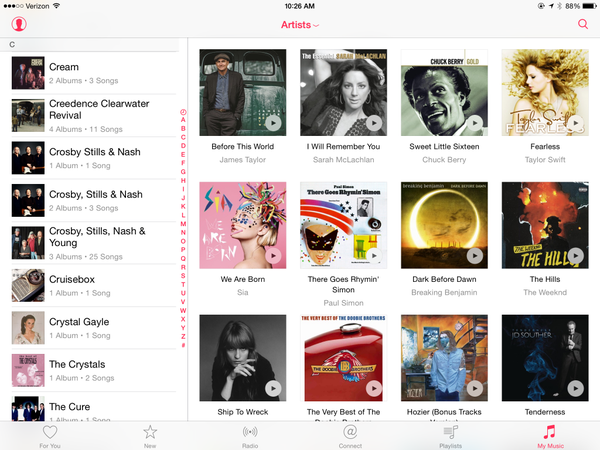Apple has increased the 25,000-track limit of iTunes Match and iCloud Music Library online services.
Following the Internet software and services SVP Eddy Cue twitter post, the Cupertino-based tech giant began rolling out support for iTunes Match and Apple Music libraries from 25,000 to 100,000 songs, Mac Rumors reported.
With the advent of Apple Music, and the ability to select from a nearly limitless amount of music to add to libraries, users have been frustrated by this ceiling. However, the change will not reflect to all users just yet, and it is also not clear exactly how many tracks can now be added to the aforementioned libraries.
With Cue’s comment, it is expected the change to be live for all users by the end of 2015. It is also a welcome move from the company, as many users have in the past requested Apple to increase the limit.
The iCloud Music Library is an online collection of music that receives update from iTunes Match and Apple Music. iTunes Match scans iTunes collection and gives users access to any tracks it already has on its servers. and costs $24.99 a year. In addition, it uploads any songs it cannot find and allows the users to access or download them with all their registered devices.
On the other hand, Apple Music includes a very similar service alongside its streaming options. The difference is that its scan and match feature includes DRM, although user can download them, it will stop working upon cancelling the subscription. Users can get it for $9.99 per month for an individual membership, $14.99 per month for a family.
Apple is not the only one that offers the same service. Google Play Music lets even non-paying subscribers store 50,000 songs and Microsoft's Groove Music allows users to play any track on their OneDrive for free, according to Engadget.





















